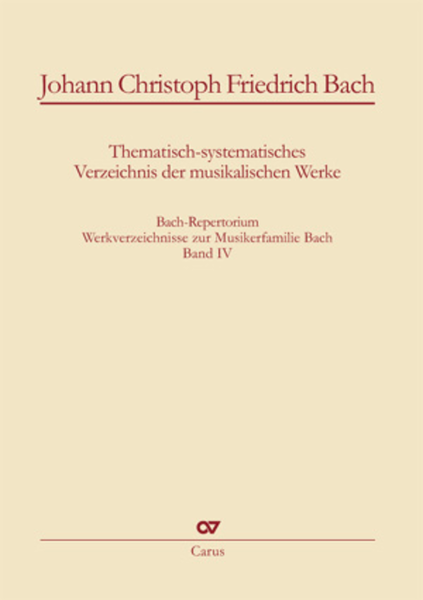Bach-Repertorium, volume 2: Wilhelm Friedemann Bach
Bach-Repertorium, catalog of the works of the Bach family, vol. 4
-
Ships in 2 to 3 weeks
Details
Description
SKU: CA.2420400
Bach-Repertorium, catalog of the works of the Bach family, vol. 4. Edited by Ulrich Leisinger. This edition: Linen cover. J.C.F. Bach. Catalogues of composers' works, Musicological books. Book. BR JCFB. 488 pages. Carus Verlag #CV 24.204/00. Published by Carus Verlag (CA.2420400).Language: German.
No musical family has made such a significant contribution to the history of European music as the Bach family from Thuringia, in Saxony. From the 17th through 19th centuries one finds outstanding musicians among the family who participated in all levels of musical life whether it be town, court or church music - their works span all genres of vocal and instrumental music and reflect the stylistic developments of the individual eras in which they lived. Within the framework of the Bach-Repertorium research project at the Sachsische Akademie der Wissenschaften zu Leipzig, thematic catalogs are being compiled for all members of the Bach family. With catalogs which include incipits, texts, tables and indexes, the compositions will be described using a unified set of criteria and they will be based on the latest musicological research. To distinguish him from his brothers, in the 18th century Johann Christoph Friedrich Bach was known as the "Buckeburger" Bach. His extensive opus encompasses all genres of instrumental and vocal music. Systematic research has led to the rediscovery of a number of works previously believed to have been lost, as well as to works which until now have been completely unknown; furthermore the existence of other lost works also has been verified. Thus today, for the first time an overview of the creative output of the second youngest Bach son is possible, which now occupies its own independent position in the history of 18th century music.

 Share
Share